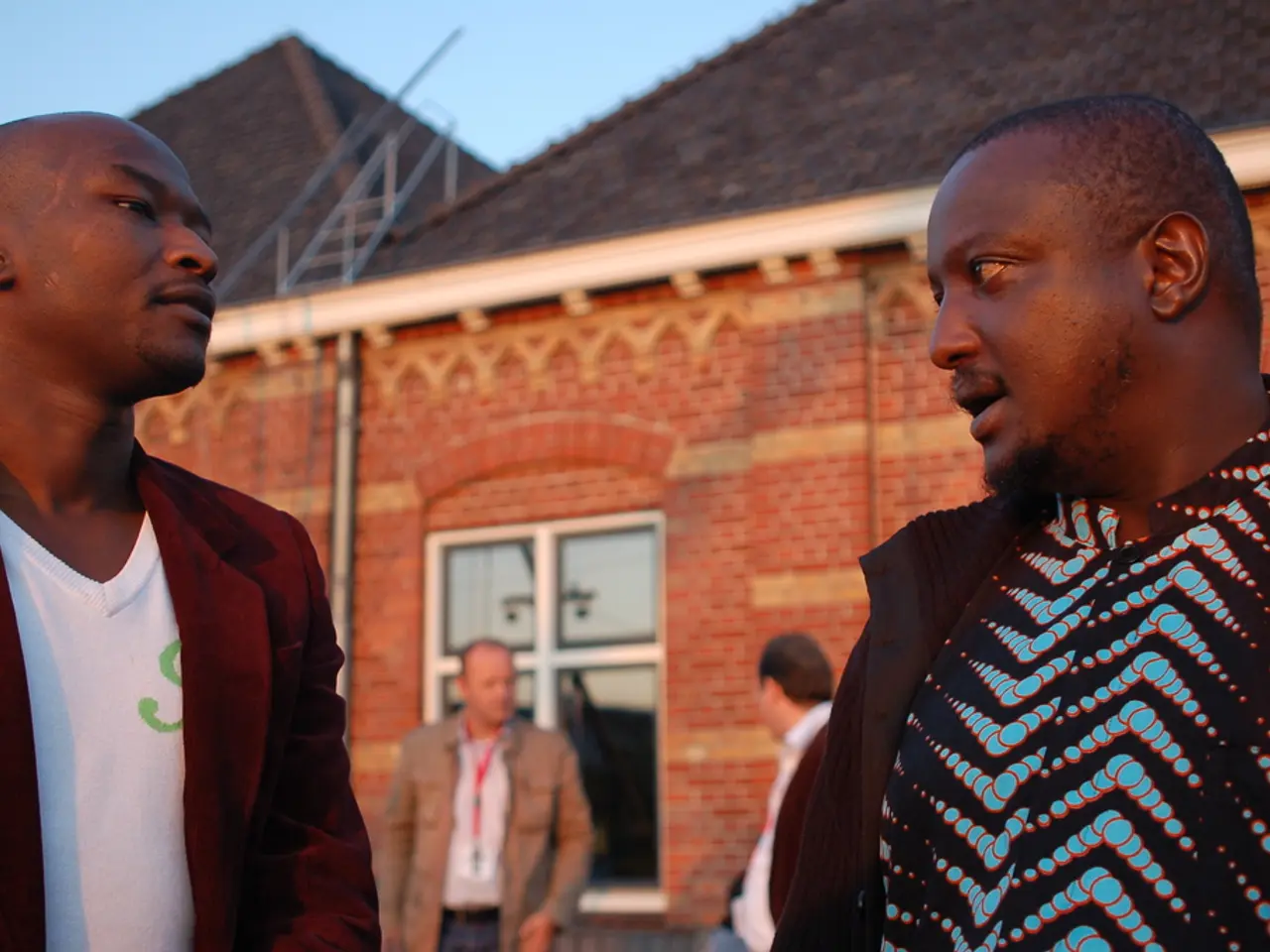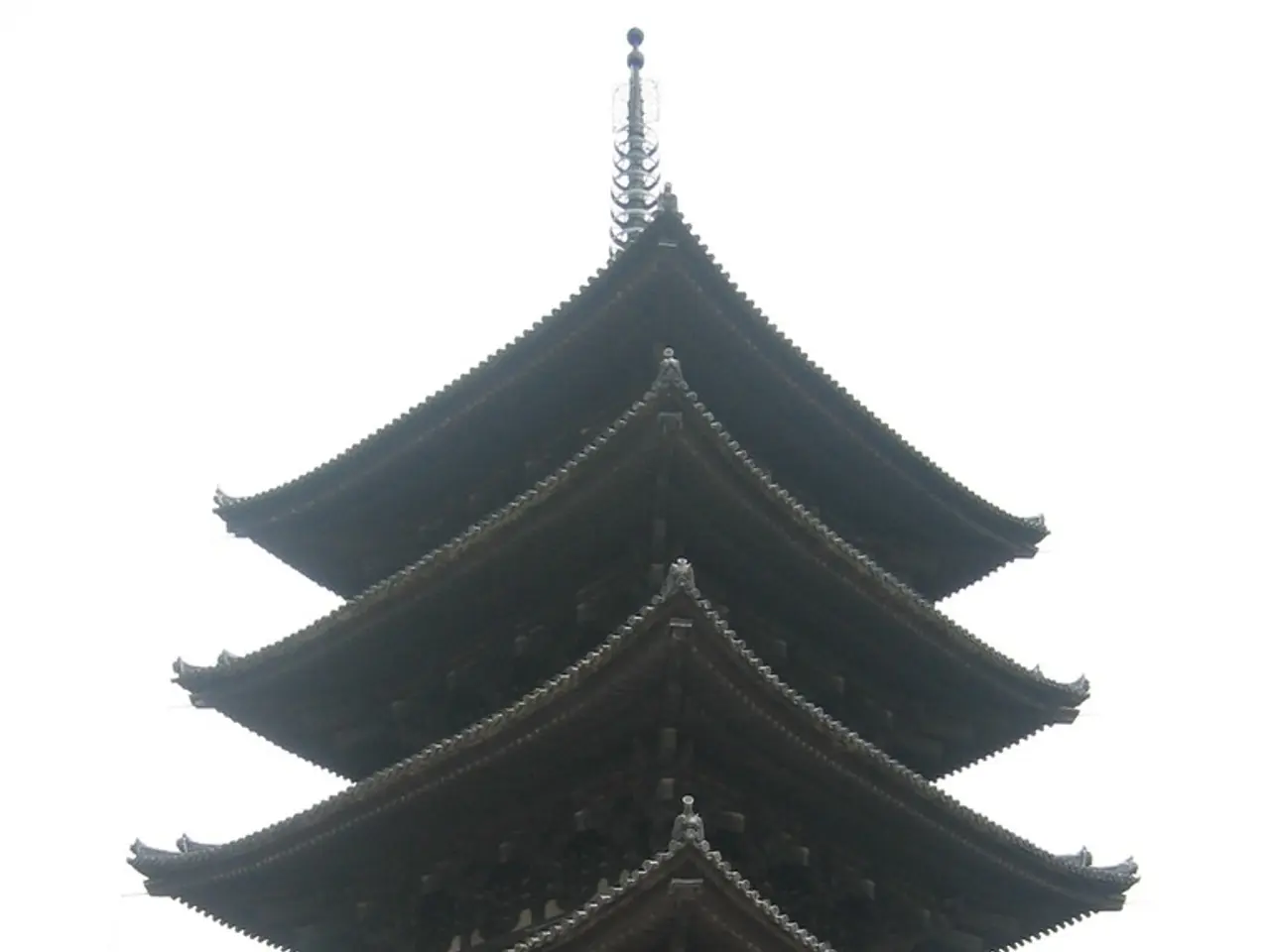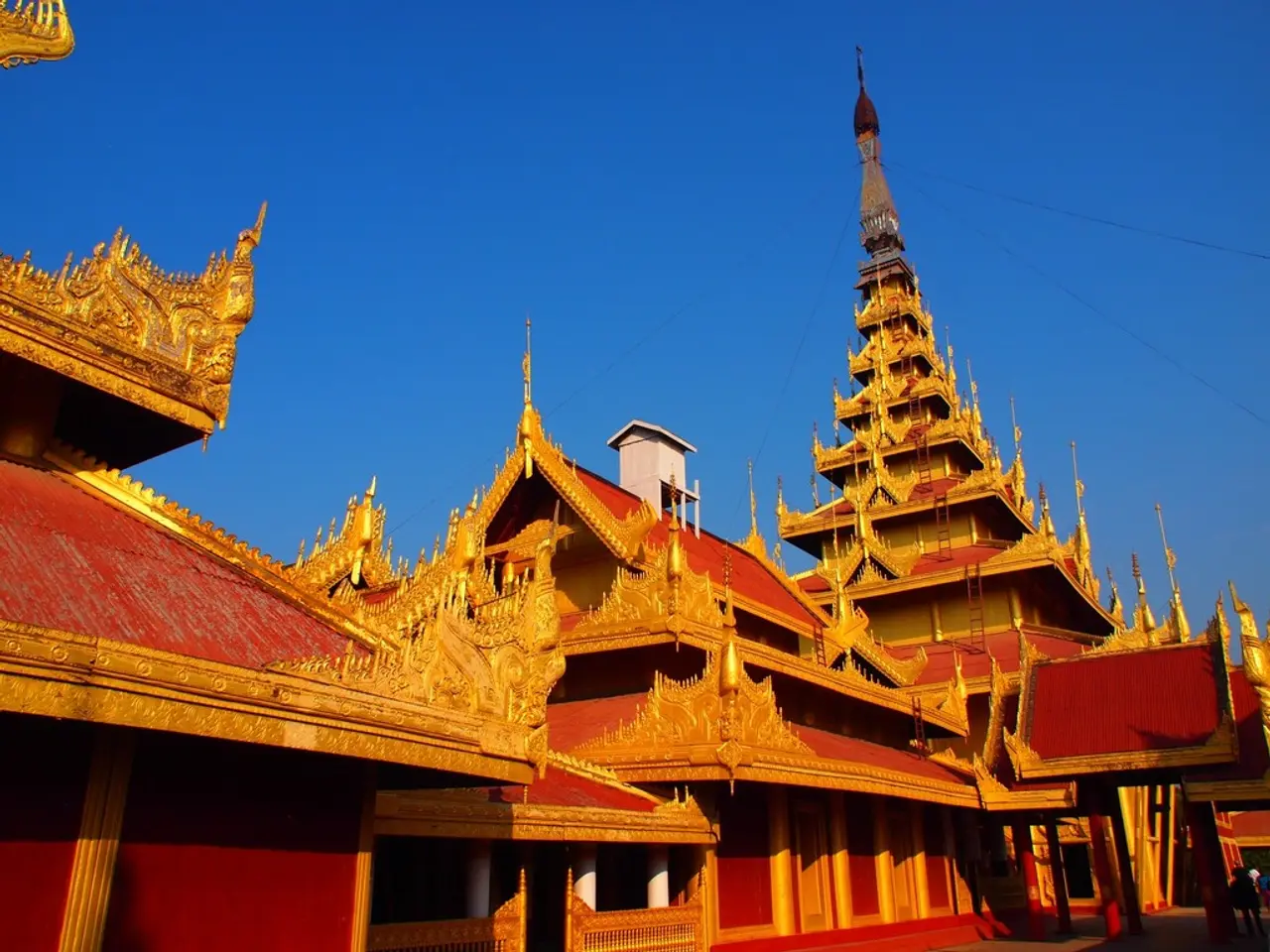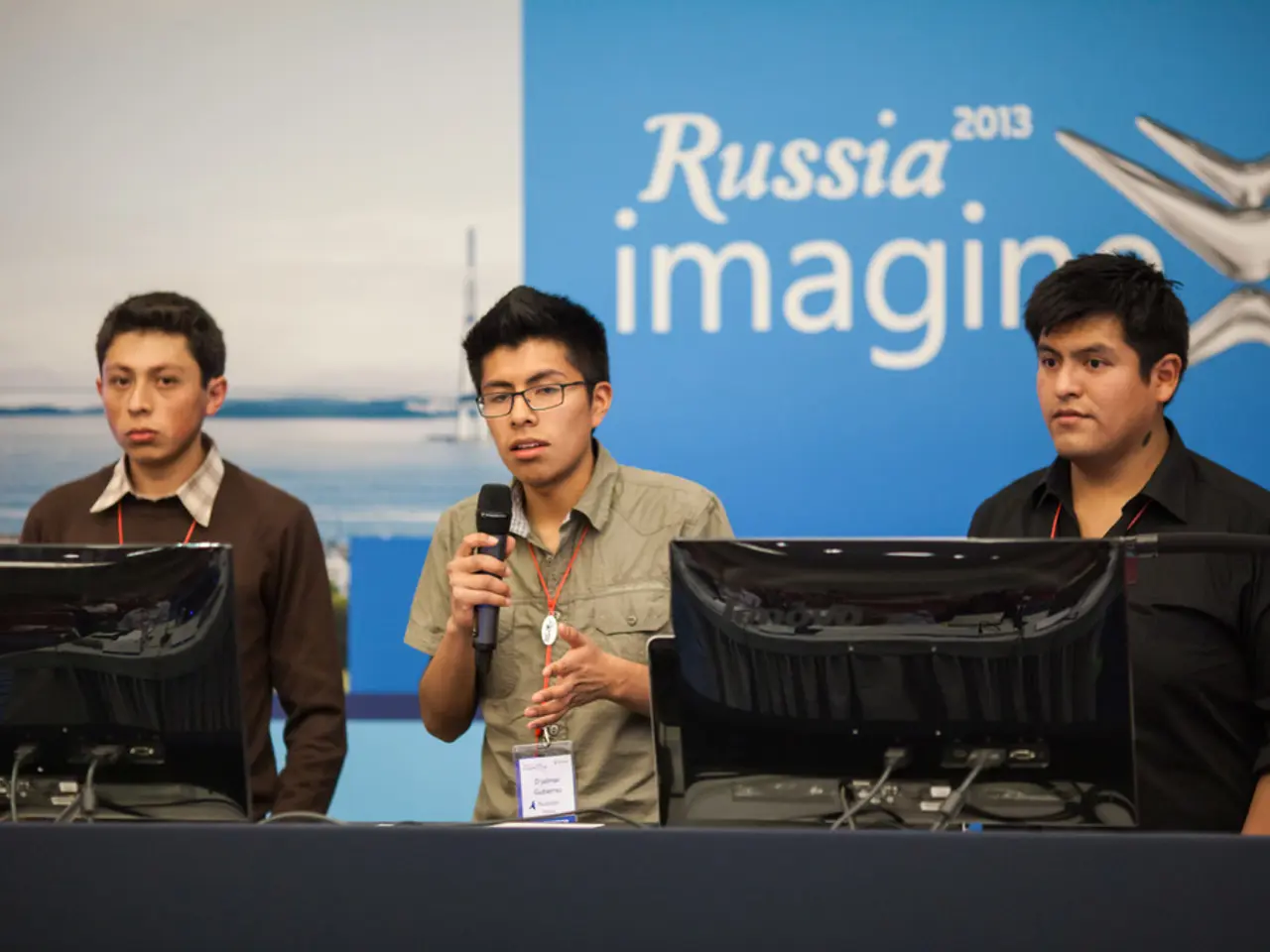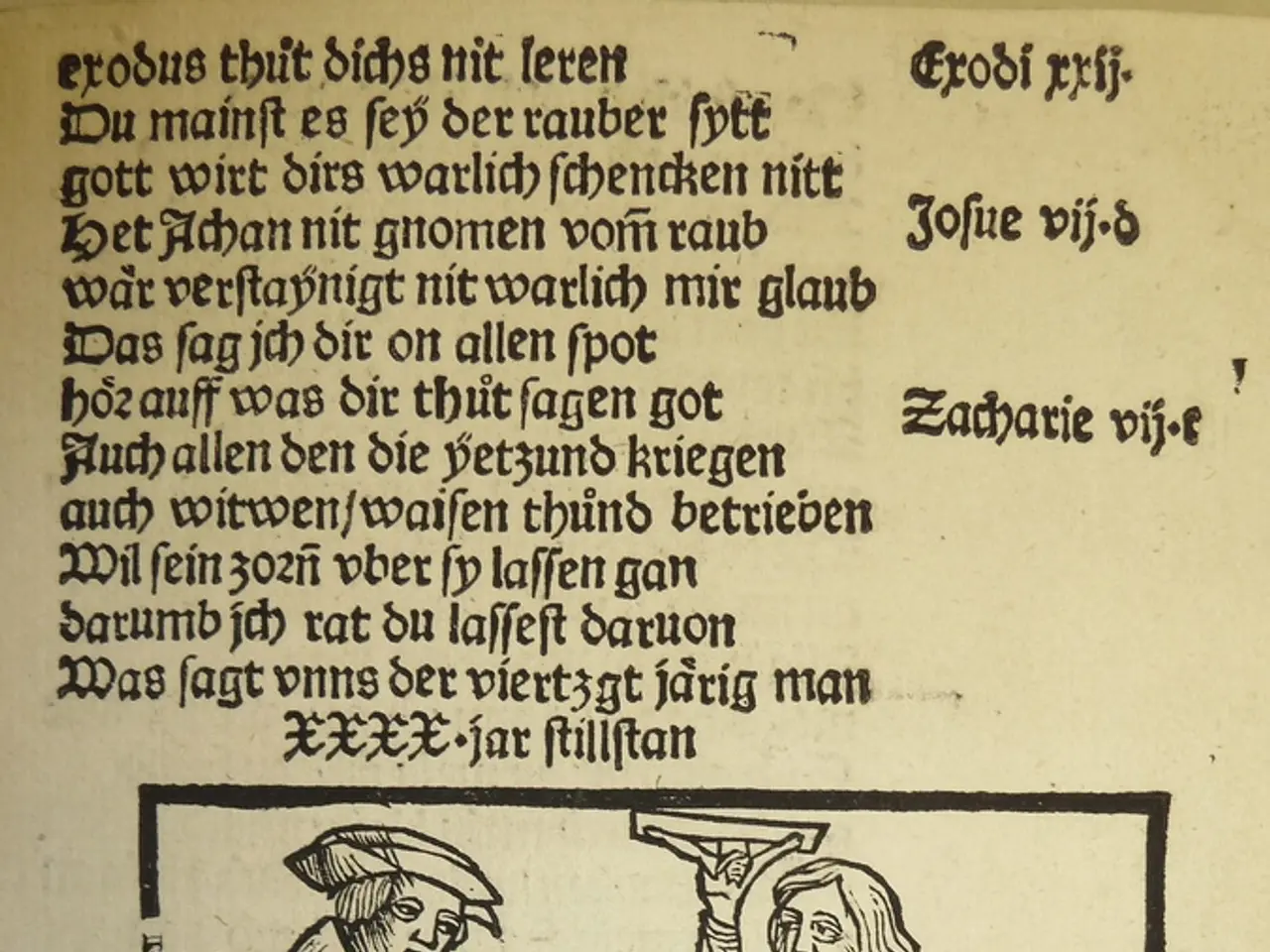US-brokered peace treaty agreed upon by Armenia and Azerbaijan at the White House - U.S. facilitates a peace accord between Armenia and Azerbaijan, signed at the iconic White House venue
In a momentous development, the leaders of Armenia and Azerbaijan, Nikol Pashinyan and Ilham Aliyev, respectively, signed a peace agreement at the White House, marking the end of decades-long conflict over the Nagorno-Karabakh region. The agreement was welcomed by global leaders as a significant step towards peace and stability in the region.
The signing ceremony, which took place on July 10 in Abu Dhabi, was attended by US President Donald Trump. The agreement, named the "Trump Road for International Peace and Prosperity," includes a transit corridor with exclusive rights for the US and a commitment from both countries to cease hostilities, resume trade, travel, and diplomatic relations, and respect each other's sovereignty and territorial integrity.
Details of the agreement were not immediately known, but it was reported that both Armenia and Azerbaijan agreed to dissolve the OSCE Minsk Group, which has mediated the conflict for many years. The joint statement also commits the two countries to permanently resolve their conflict.
The historical Armenia-Azerbaijan conflict primarily centers on the Nagorno-Karabakh region, rooted in ethnic, territorial, and political disputes that have lasted over a century. The conflict has resulted in displacement of over 100,000 people, with Azerbaijan gaining control of the Nagorno-Karabakh region in 2023.
Pashinyan stated that without Trump, this breakthrough would not have been possible. Aliyev offered to nominate Trump, along with Pashinyan, for the Nobel Peace Prize. Turkey, a close ally of Azerbaijan, also welcomed the agreement, viewing it as an important development for promoting peace and stability in the region.
The meeting in Abu Dhabi did not yield any significant progress towards concluding the March peace agreement. The White House did not provide information on how the signed document relates to the official peace treaty that the two countries agreed to in March.
German Foreign Minister Johann Wadephul expressed hope for a peaceful future for both countries, while Trump had previously announced the meeting as an "official peace ceremony." The agreement is expected to usher in a new era for the two countries, ending a conflict that has lasted for decades.
References:
- BBC News: Nagorno-Karabakh explained
- Council on Foreign Relations: Nagorno-Karabakh Conflict
- Wikipedia: Nagorno-Karabakh conflict
- CNN: Nagorno-Karabakh: The long and bloody history
- Al Jazeera: Nagorno-Karabakh: A brief history of the conflict
The peace agreement, initiated during a ceremony in Abu Dhabi, includes a policy commitment from both Armenia and Azerbaijan to establish employment and community policies designed to foster stable and peaceful relations. This agreement comes amidst ongoing discussion about war-and-conflicts, policy-and-legislations, and politics, particularly in the context of the long-standing Nagorno-Karabakh conflict.
In light of the recent development, it is crucial to continually monitor general news related to this conflict to fully understand its implications on the region's future and the potential impact of these new employment and community policies.
